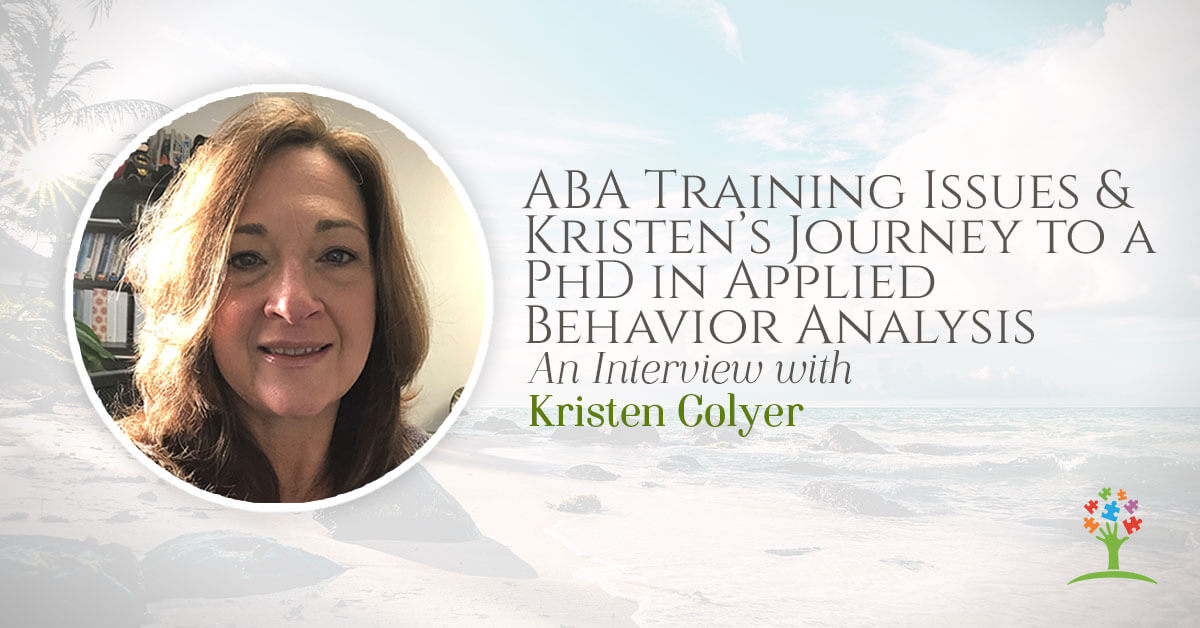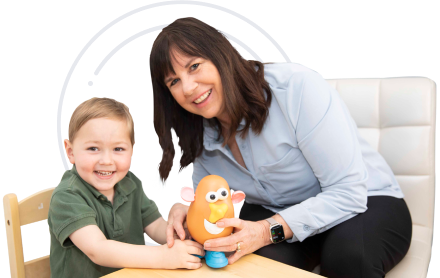Kristens Journey to a PhD in Applied Behavior Analysis

Want to Learn how to Increase Talking & Decrease Tantrums in Children with Autism or Toddlers Showing Signs?
Want to start making a difference for your child or clients?

I have worked in the autism field for nearly two decades, and everyday I’m amazed to learn something new. My interviewee for this episode, Kristen Colyer, will tell you the exact same thing.
It does not matter how long you’ve worked in the autism field; it does not matter how much experience you have in your genre; every single professional has room to grow and learn new techniques. Kristen firmly believes that one should never get into the mindset that they already know everything there is to know. If she could give a new autism professional any advice, it would be that.
Her advice to autism parents would be very similar; you are your child’s biggest advocate, so you need to be as knowledgeable as possible. That means finding all of the resources you can and educating yourself. What is autism? What is applied behavior analysis? These are questions you want to have answers to, so that you can educate others.
Aside from being a BCBA, Kristen is also the director of children’s services for the mid-Atlantic human service corporation in Maryland: Pieces of Wonder center (POW). Furthermore, she is going to college to obtain her PhD and better her understanding of the science of ABA. Kristen will share her journey thus far, and how she balances running the POW; studying for her PhD; and still finds time for herself.
Mentioned In This Episode:
Subscribe & Review in Apple Podcasts